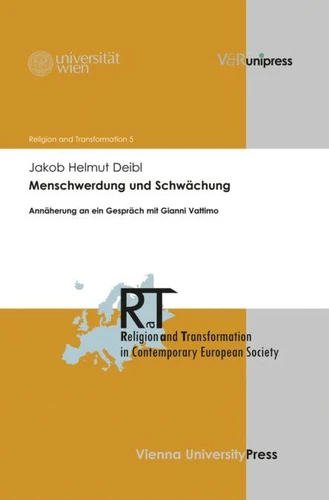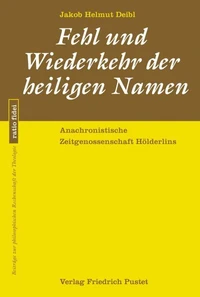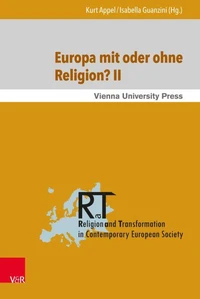Menschwerdung und Schwächung. Annäherung an ein Gespräch mit Gianni Vattimo
Par : , , , ,Formats :
Disponible dans votre compte client Decitre ou Furet du Nord dès validation de votre commande. Le format PDF est :
- Compatible avec une lecture sur My Vivlio (smartphone, tablette, ordinateur)
- Compatible avec une lecture sur liseuses Vivlio
- Pour les liseuses autres que Vivlio, vous devez utiliser le logiciel Adobe Digital Edition. Non compatible avec la lecture sur les liseuses Kindle, Remarkable et Sony
 , qui est-ce ?
, qui est-ce ?Notre partenaire de plateforme de lecture numérique où vous retrouverez l'ensemble de vos ebooks gratuitement
Pour en savoir plus sur nos ebooks, consultez notre aide en ligne ici
- Nombre de pages274
- FormatPDF
- ISBN978-3-8470-0126-3
- EAN9783847001263
- Date de parution15/05/2013
- Protection num.pas de protection
- Taille1 Mo
- Infos supplémentairespdf
- ÉditeurV&R Unipress
Résumé
Gianni Vattimo is one of the most influential representatives of postmodern philosophy and source of the concept of "weak thought". For him a marked interest in the topic of religion came into being after the end of communism and the eclipse of the Continental philosophical tradition of the "grand narratives". In the present volume Jakob Deibl delineates the development of Vattimo's approach to religion.
The crucial point for Vattimo is Saint Paul's interpretation of the incarnation of the Logos as kenosis. In a paradoxical way this idea enables him to retrieve an approach to the philosophy of history beyond traditional totalising narratives: Vattimo argues for the subversive continuity of weakening structures (which were formerly strong), that process going back to the concept of kenosis. In doing so, he tries to face the triple challenge presented by apocalyptic scenarios, fundamentalism and nihilism: the first negating any vision of future, the second seeking refuge in positions immune from rational discussion and the third dissolving any common perspective of human being.
The crucial point for Vattimo is Saint Paul's interpretation of the incarnation of the Logos as kenosis. In a paradoxical way this idea enables him to retrieve an approach to the philosophy of history beyond traditional totalising narratives: Vattimo argues for the subversive continuity of weakening structures (which were formerly strong), that process going back to the concept of kenosis. In doing so, he tries to face the triple challenge presented by apocalyptic scenarios, fundamentalism and nihilism: the first negating any vision of future, the second seeking refuge in positions immune from rational discussion and the third dissolving any common perspective of human being.
Gianni Vattimo is one of the most influential representatives of postmodern philosophy and source of the concept of "weak thought". For him a marked interest in the topic of religion came into being after the end of communism and the eclipse of the Continental philosophical tradition of the "grand narratives". In the present volume Jakob Deibl delineates the development of Vattimo's approach to religion.
The crucial point for Vattimo is Saint Paul's interpretation of the incarnation of the Logos as kenosis. In a paradoxical way this idea enables him to retrieve an approach to the philosophy of history beyond traditional totalising narratives: Vattimo argues for the subversive continuity of weakening structures (which were formerly strong), that process going back to the concept of kenosis. In doing so, he tries to face the triple challenge presented by apocalyptic scenarios, fundamentalism and nihilism: the first negating any vision of future, the second seeking refuge in positions immune from rational discussion and the third dissolving any common perspective of human being.
The crucial point for Vattimo is Saint Paul's interpretation of the incarnation of the Logos as kenosis. In a paradoxical way this idea enables him to retrieve an approach to the philosophy of history beyond traditional totalising narratives: Vattimo argues for the subversive continuity of weakening structures (which were formerly strong), that process going back to the concept of kenosis. In doing so, he tries to face the triple challenge presented by apocalyptic scenarios, fundamentalism and nihilism: the first negating any vision of future, the second seeking refuge in positions immune from rational discussion and the third dissolving any common perspective of human being.





